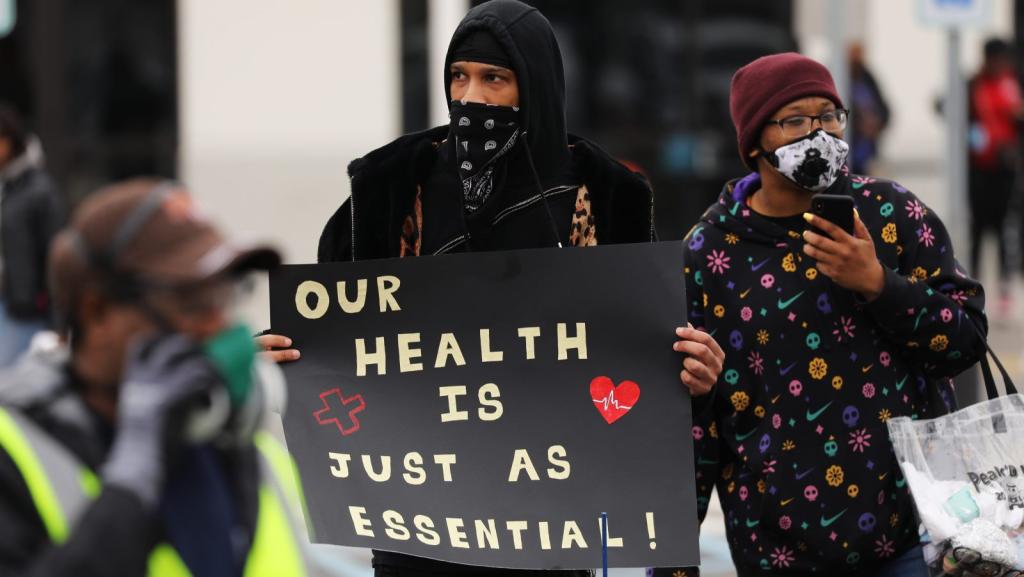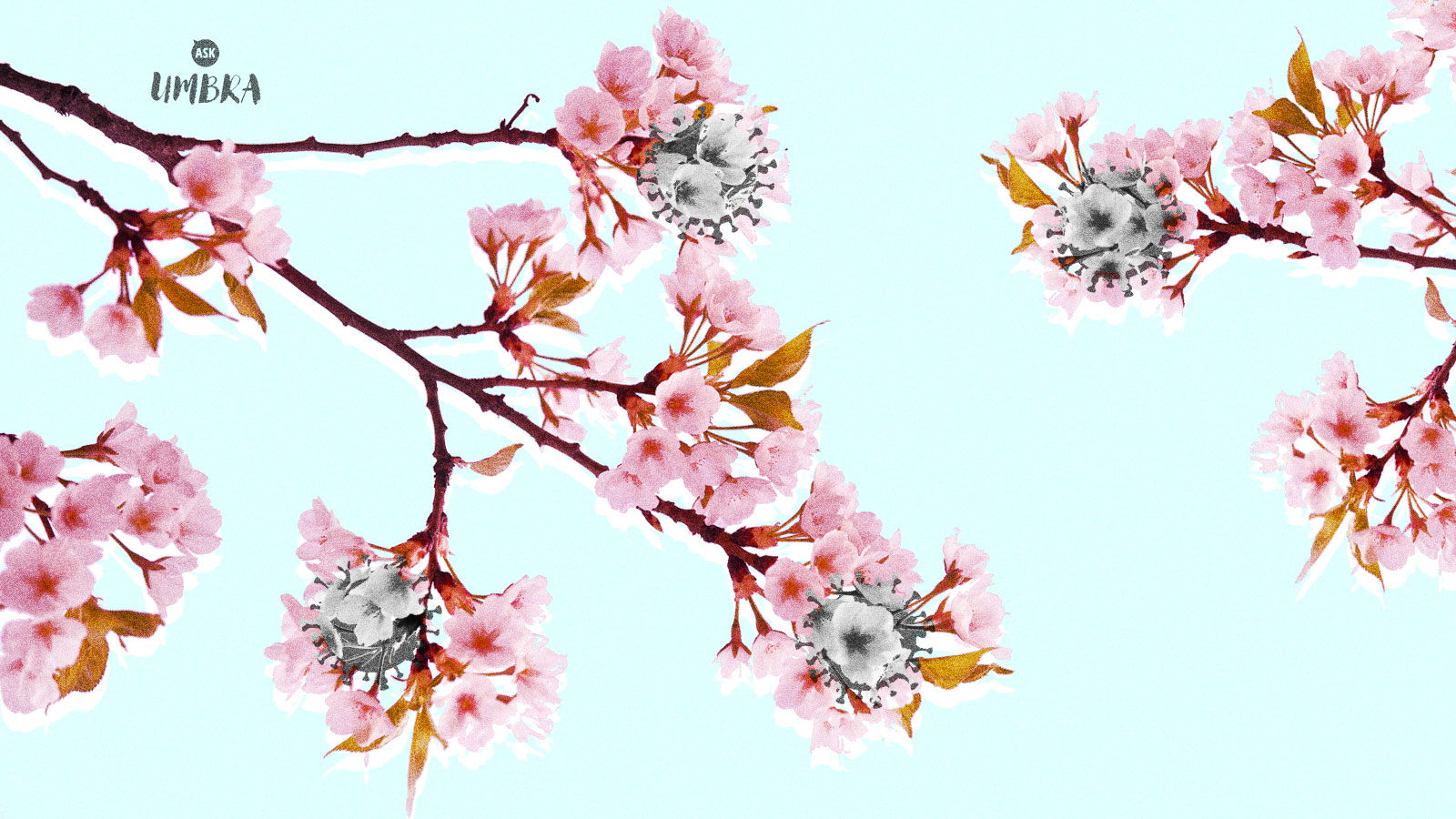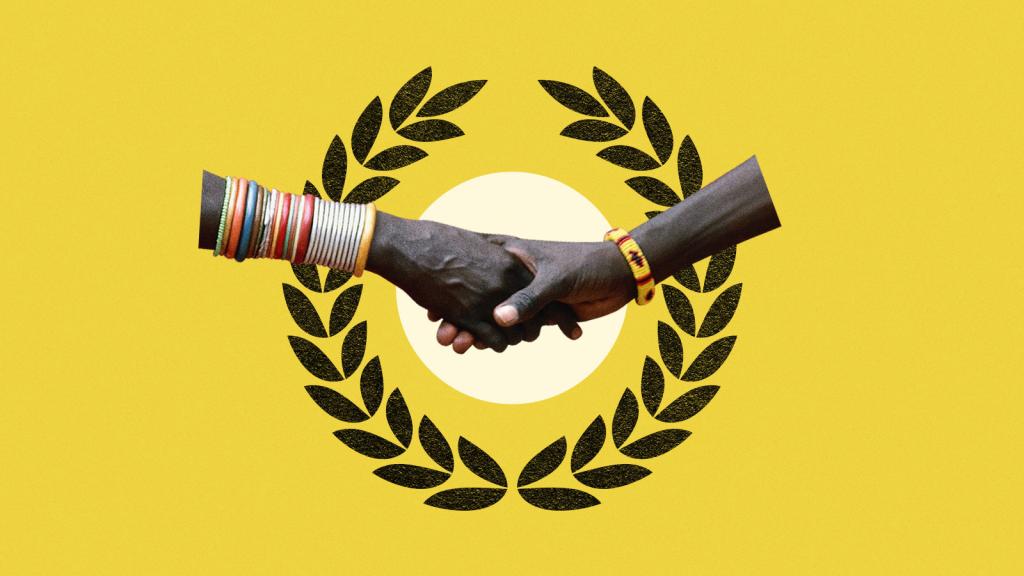Q. Dear Umbra,
I write an advice column, and right now it feels like there is no advice in the world that could be useful to anyone. Help.
Wearily,
Eve
A. Dear Eve,
I guess this is a bit of a pull-back-the-curtain moment, because I am having a very hard time being Umbra right now. Trust me, even in the midst of a global pandemic that feels like a ridiculous thing to say. While essential workers leave home every day to face the grim realities of our current coronavirus pandemic head-on, I am writing this column from the comfort of my couch with a handful of Ruffles in reach. I know that I am ridiculously lucky to have a job where I get paid to simply put words on a page.
But it has been a struggle over the past month to put words on this particular page that do not feel at least a little bit disingenuous. My job is to give you factually-derived, compassionate, and above all, encouraging advice on what you can do to help alleviate the climate crisis. And then a different world threat came along and turned my life into a very insular, small, dark thing, and I am not dealing with it very well. How on earth can I advise anyone else on how to keep their chin up, make the best of things, and stay vigilant on climate change when I have been emotionally devastated by nearly a month of coronavirus social distancing? I don’t want to think about another global crisis! I don’t even want to think about tomorrow!
I have never been great at drawing sharp lines between work and life, anyway, and suddenly there are even fewer physical boundaries on what is work and what is life and I feel like I am just floating through all of it, foggy-brained and bewildered. There has been a lot written over the past week about how that floating feeling is grief; a kind of mourning for life lost, not just in the literal sense but also the sudden evaporation of all the daily realities, both mundane and delightful, that reassured you of your place in the world.
To move beyond that grief — or fear or anxiety or anger, it’s really kind of a combo platter at the same unbearable buffet — you’re ostensibly supposed to recognize it, call it by its name, say that you’re feeling it.
I think I am grieving, certainly, but the more dominant feeling is anger. Or incredulity, maybe. I feel my brain breaking into increasingly rage-tainted pieces with every pithy morsel of Tik-Toked encouragement that “we are all in this together.” This sentiment is nice, to be sure, but like most facile encouragement, it is based on fantasy. (That is not a bad thing, necessarily; sometimes you need fantasy to get you through the day, and that doesn’t make what you accomplish in the day any less real.)
The reality is that the rich are fleeing to their remote vacation homes (who cares about the communities where those homes are, right?) and ostensibly waiting until, tens or hundreds of thousands of deaths later, this has all petered out; meanwhile, the financially “comfortable,” like me, will quietly (but comfortably!) go mad in their homes feeling helpless; and those most vulnerable will struggle and suffer for a long time to come. There will be deaths across all income brackets, but like so many crises, the structural nightmare that this pandemic has wrought will have lasting and detrimental effects on those who already had less to begin with.
When I take my pathetic daily stroll through very picturesque Queen Anne streets to avert a complete meltdown, it is insane how normal everything looks. It feels like falling into a good dream, or waking up from a bad one. It’s the low-key most beautiful time of year in Seattle and people are jogging alongside their grinning dogs, all the trees are in pastel bloom, and couples are strolling around hand-in-hand drinking cans of beer. The sun is out in these crystal rays that feel purifying. And this is ostensibly the epicenter of coronavirus — although we’ve recently been unseated by the still-rising death tolls in New York.
I know that in this same city, nurses go to work fearing for their lives, thousands of service workers don’t know how to pay rent all of a sudden, and people are dying every day. But I don’t see any of that. So much has been written on the parallels that the climate crisis shares with the COVID-19 pandemic, so I won’t exhaust you by listing them, but the one I cannot get over is the insulation factor. Many of us in privileged positions can live our lives knowing that there is this terrible looming threat that is already wreaking death and destruction and unspeakable misery, and yet, for now, we so rarely see it in your own lives that we come unhinged; it’s like we are being haunted by a ghost that will only show its presence in fleeting, hard-to-capture moments.
In this pandemic, for example, I can go home and wash my hands and, most likely, I’ll be fine. I don’t know whether to be deliriously grateful for my luck or anxiously preparing for inevitable disaster, and both options seem unspeakably selfish. I want to do something that, in meaningful terms, will truly help the people who are enduring the threat, but I am at a loss as to how.
The refrain I keep hearing about what makes the pandemic lockdown so hard to bear is that there is nothing to look forward to. It’s impossible to plan anything two, three, four months down the line, because who is sure what will happen? Restrictions keep getting extended — rightly so — and every day we become more aware of the gravity of the situation. This should be familiar for my generation! Even more so for the one coming up behind me. What big future goals can we really plan for? The kids whose future wellbeing is shaky at best? The homes that we can barely begin to afford, regardless of whether they’re drowned by the sea or burnt up by wildfire? In the inability to plan for the distant future, there was solace in planning stupid weekend trips or short-term projects. We don’t even have that right now.
I don’t want to end with some tidy, uplifting message because I can’t. At least not yet. I think it is OK to say that things are bad, and we feel insane, and they can get better and recovery is possible. But it is also fine to just feel that they’re just very bad right now. And while I can’t offer you advice exactly this week, I do offer you this little bit of empathy.
Honestly,
Umbra



